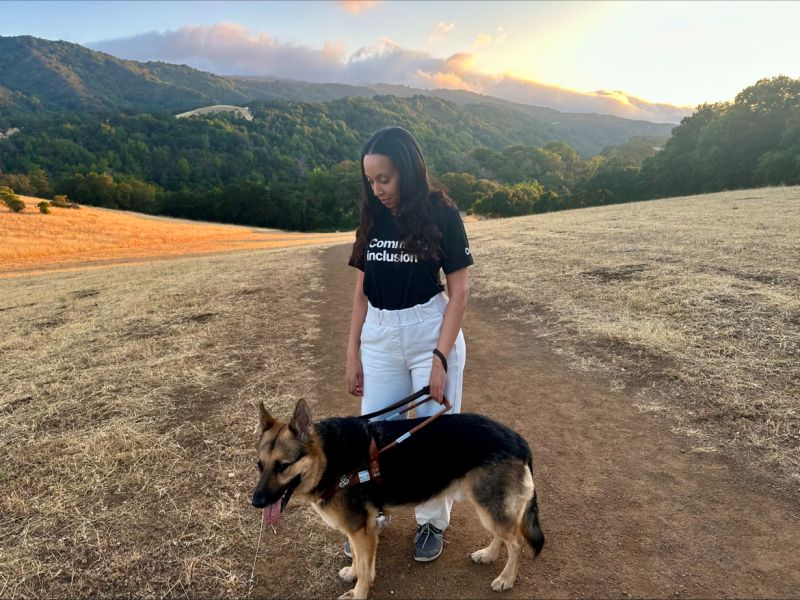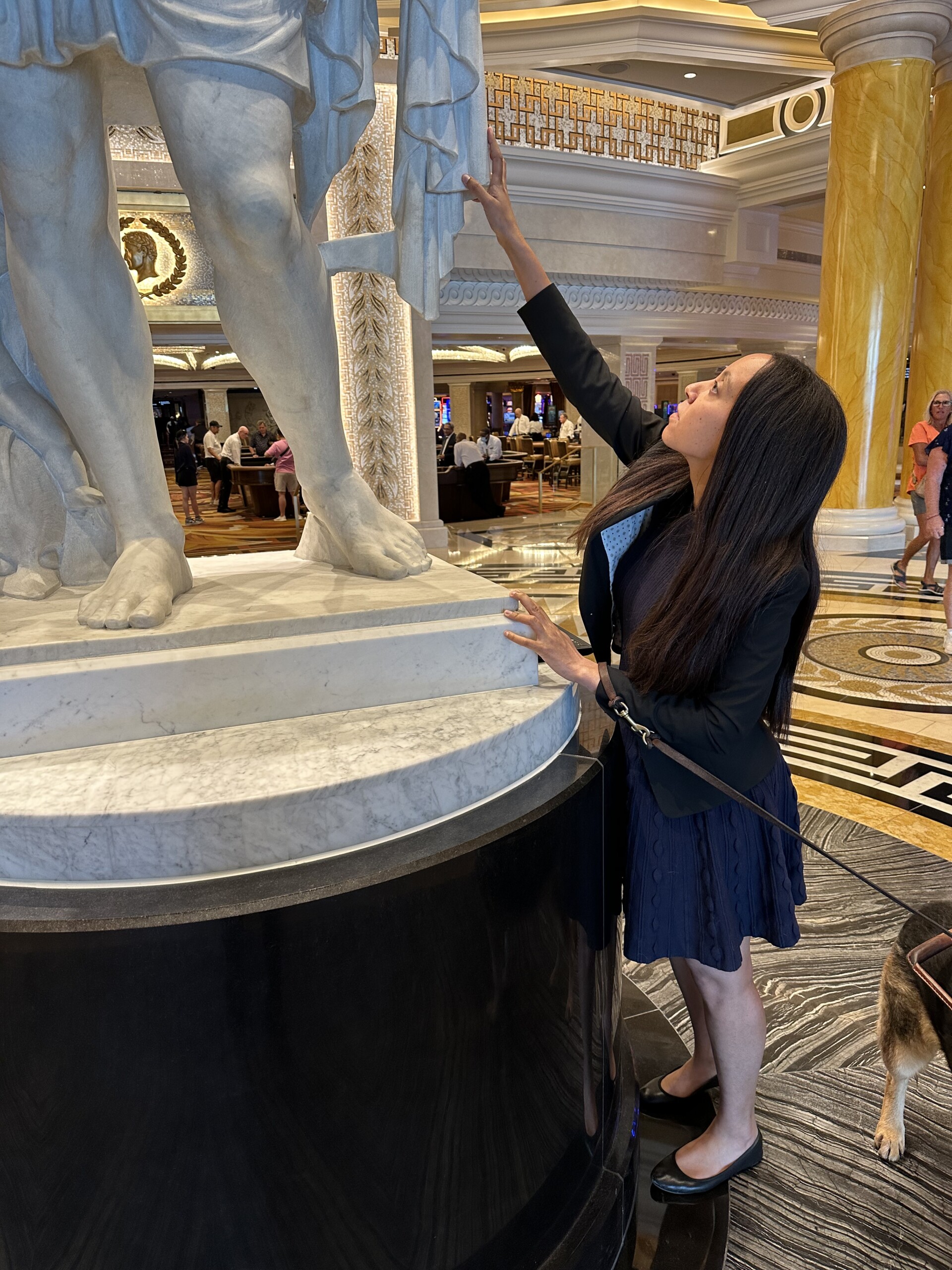Transcript (Haben speaking): Because I’m blind, an airline is saying I have to sit alone. We booked side-by-side seats. But when they found out I’m blind, they separated us. They’re claiming it’s their policy that if a person has a service dog over 55 pounds, they need a separate extra seat because they assume the dog won’t fit. Weight is just a number.
Guide Dogs are trained to tuck themselves under seats and I can use my feet as a barrier, keeping my dog confined to the floor space by my feet.
(Photo of a German Shepherd dog sweetly looking up at the camera while curled up on the floor by my feet. We’re both within the designated space for a single plane seat.)
And that extra empty seat, they want me to pay for it! Charging disabled people double for tickets, telling us we can’t sit next to family or friends, and, guide dog fat-shaming.
My trip is in a few weeks and I don’t know exactly what will happen, but I know I’m going to do everything I can to make sure other disabled travelers never have to deal with this. I filed a complaint with the U.S. Department of Transportation. The airline is Azores Airlines from Portugal, but because they fly to the US, they’re still subject to our anti-discrimination laws.
Filing a complaint with the U.S. Department of Transportation is free, fairly straightforward, and it can be done online. Please help share this video so more people know they can file complaints when experiencing airline access issues. Let’s remove barriers all over the world.






